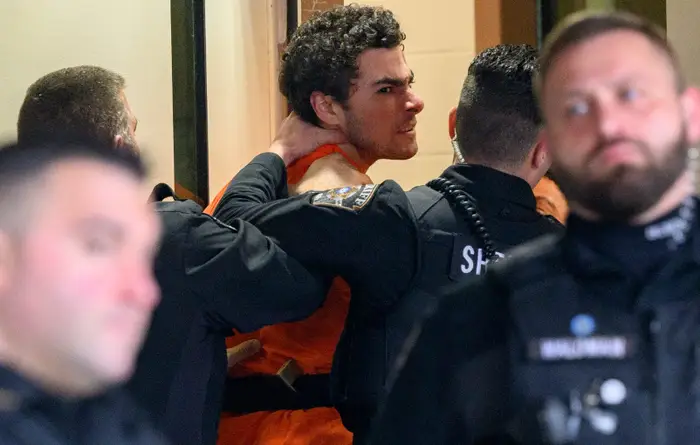Luigi Mangione, the 26-year-old man charged with the murder of UnitedHealthcare CEO Brian Thompson, faces a challenging path in mounting a legal defense due to forensic and ballistic evidence that allegedly links him to the crime scene.
Mangione was arrested in Pennsylvania on Monday after a multi-state manhunt culminated at a McDonald’s in Altoona. New York authorities have stated that fingerprints and shell casings found at the scene connect him to Thompson’s murder.
His attorney, Thomas Dickey, previously mentioned that he has not seen conclusive evidence implicating his client. Mangione intends to plead not guilty to firearms charges in Pennsylvania, though it remains unclear how he will plead to the second-degree murder charge in New York. He is currently contesting extradition to face that charge, a process that could take over a month to resolve.
Legal experts indicate that Mangione’s extradition efforts are likely to be unsuccessful; however, this phase could provide insight into the state’s case against him. “I don’t even know if this is him,” Dickey commented regarding images of Thompson’s alleged killer. He added, “We’re going to test those waters and give the government a chance to present their evidence.”
Should he be extradited to New York to face the murder charge, attorney Mitchell Epner believes there are two potential defense strategies for a not guilty plea: denying responsibility or admitting guilt while asserting mitigating circumstances.
According to police, Mangione possessed a firearm matching the murder weapon, a silencer, a fake ID, and three handwritten pages that may indicate a motive. Epner remarked that denying responsibility is likely no longer a viable option given the evidence amassed.
Another legal expert, Professor Dmitriy Shakhnevich, noted that Mangione’s lawyer might argue that an impaired mental state makes him unfit for trial. “If a judge deems him unable to understand the court proceedings, the case may not proceed,” he explained. While this defense differs from an insanity plea, both could lead to institutionalization rather than acquittal.
The start of Mangione’s legal battles has prompted anonymous donations toward his defense through online fundraisers, alongside mixed reactions online, with some expressing support for him while criticizing the healthcare industry.
The NYPD has also issued warnings to healthcare executives, indicating a potential “hit list” circulating on social media following Thompson’s murder. Some of these posts included names and salaries of other insurance leaders, along with mocked-up wanted posters.
Timothy Gallagher, a former FBI agent, cautioned that the heightened attention surrounding the case could lead to copycat incidents. “There are individuals with grievances watching the press coverage of the accused,” he noted, highlighting a risk of follow-on attacks fueled by support for anti-corporate sentiments in certain online communities.
Credit: BBC News




